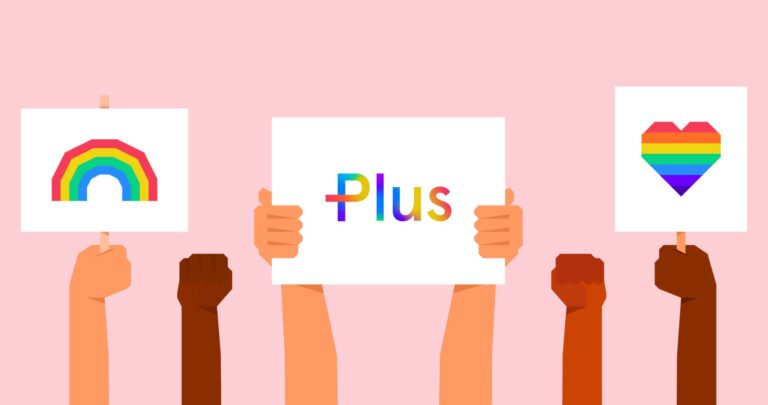In the spirit of the late-90’s classic, 10 things I hate about you, here are 10 things I hate about how my industry thinks about Diversity:
- Assuming Diversity = Inclusion
- 1D-diversity: focus on only one of gender, race, sexuality, etc.
- Diversity as just a hiring problem
- Inclusion as just a People/HR team problem
- Ending the convo after unconscious bias training
- PR without follow-through
- Leaving D&I to the affinity groups
- Assuming Equality = Equity
- Lack of measurement
- The Zero-Sum Game
I could talk about any of these, but the zero-sum game is the one that doesn’t get spoken about anywhere near enough.
An example: The gender gap in tech
“If there were 100 tech workers in the whole world, 25 were female and 75 were male, and there were two 50-person tech companies out there... if one of those companies actually achieved a 50/50 gender split, the other company would be at 0/100.”
Here’s a simplified version where we take gender as an example.
To make the numbers easier to understand, let’s imagine that the tech industry is 75% male, 25% female (this is generous; women make up c. 24% of Technology positions).
Every Tech company:
- ‘We want a 50/50 gender balance’
- Does dedicated diversity sourcing, asks for diverse shortlists, shouts a lot about diversity, has a fancy policy, etc etc.
Also many Tech companies:
- Does nothing to improve the gender diversity of the overall industry pool
This is crazy. If there were 100 tech workers in the whole world, 25 were female and 75 were male, and there were two 50-person tech companies out there… if one of those companies actually achieved a 50/50 gender split, the other company would be at 0/100.
This is, at best, a local, not global success.
The tech industry’s diversity push is one never ending tug of war, yet this is the zero-sum game and the approach most tech companies take.
So what does really caring about diversity look like?
TL;DR: bringing up a more diverse next generation.
Stereotypes are insidious and start at an early age – way before workers enter the workforce, even before students pick their disciplines in school that affect how they enter the workforce. There’s even evidence to suggest these stereotypes are there before children even learn to read.
And these stereotypes tell minorities that technical, high-paying jobs in tech aren’t for people like them.
We’re only going to solve the diversity problem in tech by going to the source, where there are two issues:
- Not enough diverse people entering the technology workforce (whether out of school or switching later in life); and
- The pipeline is leaky – diverse candidates are more likely to exit the tech industry (for caring duties, personal reasons, or discrimination) than those in the majority.
Inclusion initiatives should help with the second facet – and there’s been great work by many tech companies to shift to more human-first working patterns, practices and policies to shore up the leaks. But there is a lot of work to do to combat the first challenge & get more people into tech in the first place.
“Don’t just leave it to teachers - show the promise of these roles to the next generation, don’t just tell them about it. A quick tip is to reach out to local schools - especially those that lack the resources to explore these subjects. Local alumni speakers who are actually in these industries are a quick and simple way to show children that there are real opportunities out there for all people - including people like them.”
What you can do to support diversity in tech
So, tech companies out there, here are three things you can do to get us out of this zero-sum game:
1. Support early-age initiatives
Awareness of future career opportunities in diverse populations is a challenge. At Tessian, we’ve been working with organisations such as the WISE Campaign’s Young Professionals’ Board whose mission is to inspire, engage & advocate for the next generation of STEM (science, technology, engineering and maths). Gisela Rossi, Tessian Engineer & WYPB member has been supporting initiatives such as the Tara Binns book series working to break down stereotypes in children aged 5-11, and running competitions to engage children in these industries.
There are many great organisations out there such as the WISE Campaign, and STEM.org, but don’t just donate dollars – donate voices, and donate time.
2. Go back to school
On that note, volunteering initiatives are powerful. We encourage our Tessians to take volunteer days & outreach to schools to raise the profile of voices in tech, and evangelize that tech can be for anyone.
Don’t just leave it to teachers – show the promise of these roles to the next generation, don’t just tell them about it. A quick tip is to reach out to local schools – especially those that lack the resources to explore these subjects. Local alumni speakers who are actually in these industries are a quick and simple way to show children that there are real opportunities out there for all people – including people like them.
3. Grads Grads Grads (& Career Changers)
Yes, you need diversity at the top too, but if all your roles demand 5+ years of experience, the next generation of diverse candidates is never going to arrive.
As soon as you reach a critical mass, you need entry-level programs and paid internships – and yes; they have to be paid, because unpaid internships are only viable for those who can already afford not to bring in earnings.
What about at Tessian?
At Tessian, we were less than 15 people when we hired our first intern, and we’ve run paid internships (sometimes in full blown programs, sometimes ad-hoc) and brought in young talent ever since. And we’re hiring our next engineering grad intake now.
Yes – it’s going to eat up some management time, but in my view, any tech company with a decent cash balance that isn’t running either paid internships or entry-level programs, isn’t taking diversity seriously in a meaningful sense.
Doing the right thing, and running a human first company can be hard; the benefit of the initiatives will be felt by the tech industry in 10 or 20 years’ time, not the tech industry of today.
The ROI in your one to three year business plan isn’t going to bear the fruit of these initiatives, but folks, we have to solve this: we have a huge skills gap in tech and cyber security, where there are high paid jobs sitting vacant for lack of interest and training.
As an industry with so much promise and so much investment, we need to stop looking inwards and start looking outwards to the global tech ecosystem, or our diversity initiatives will just be us forever chasing our tail.












